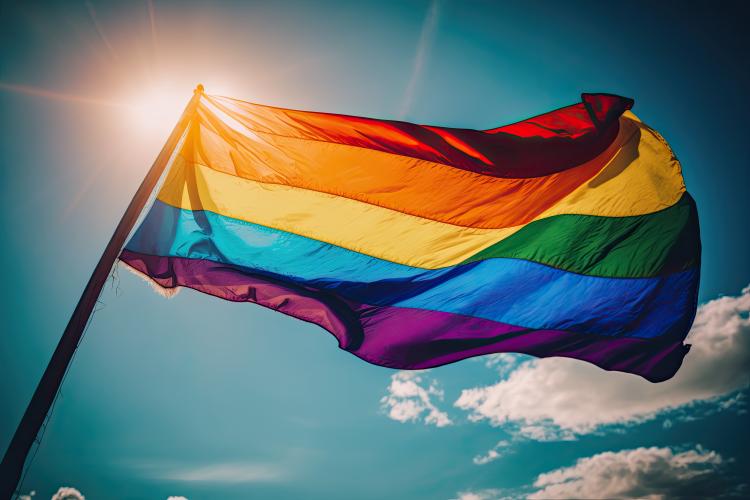
The Pride festival was intended to be a closed event, organised by Tbilisi Pride on July 8. However, after 2000+ anti-LGBTQ+ demonstrators stormed the festival area, organisers were forced to cancel the event and evacuate the premises with the police. The government has faced criticism for not adequately safeguarding the right to freedom of speech and assembly.
After the initial notice about the event from festival organisers, right-wing and anti-LGBTQ+ activists announced through their Telegram channel their intention to disrupt the Pride festival, mobilising individuals from different regions of Georgia.
On July 7, the President called on relevant authorities to ensure the safe conduct of the Pride festival and protect the freedom of speech and expression of participants, emphasising that violence and encouragement of violent groups should not be tolerated.
However, on July 8, the day of the Pride festival, right-wing groups gathered in the area and vowed to prevent the festival from taking place, promising that only “true Georgians” would be allowed to prevail (see, for example, Zurab Makharadze's speech, member of “Alt-Info”).
Police were notified and mobilised to contain the situation. Yet, their efforts fell short: they were unable to effectively deter the surging tide of anti-LGBTQ+ demonstrators. Festival organisers were forced to evacuate the premises under police escort. Far-right groups infiltrated the festival area, wreaking havoc upon installations, wilfully destructing private property and desecrating LGBTQ+ flags. According to a statement, damaged property belonged not only to the Pride festival but also to Open Air and their partners. The organisers are demanding compensation for the losses and hold the authorities responsible for encouraging the perpetrators and failing to protect the festival.
According to Deputy Minister of Internal Affairs, Aleksandre Darakhvelidze, despite the mobilisation of police units, “since this is an open space a large number of unauthorised participants managed to breach the cordons and enter the festival area.” He acknowledged the challenges of ensuring complete security, but assured that all festival participants were safely evacuated from the site.
President Salome Zurabishvili expressed her disappointment in the police's failure to stop the violence during the disrupted Pride Festival and criticised the government for encouraging such acts.
The Public Defender emphasised the importance of protecting the right to expression and assembly as guaranteed by the Georgian Constitution, calling on the Ministry of Internal Affairs to ensure a safe environment for citizens to exercise their rights.
International responses to the disruption of the Pride festival expressed deep concern and condemnation. Ambassadors from Germany, the United Kingdom, and the Czech Republic criticized the violation of the freedom of assembly and called for those responsible for the violence to be held accountable. The European Union delegation in Georgia also expressed regret over the cancellation of the Tbilisi Pride Festival: “Disappointing to see that security and freedom of assembly could not be ensured. Those calling for violence and perpetrating violence must be brought to justice.” Viola von Cramon, member of European Parliament, also expressed her dismay at the violent disruption of freedom of assembly and expression by far-right extremists in Georgia. She criticised the Georgian government and police for their apparent unwillingness or inability to protect the constitutional rights of Pride participants, which she sees as a reflection of a weakened state.
On July 9, queer activists staged a protest-performance in front of the parliament, displaying the destroyed items from the disrupted festival. They aimed to highlight that the operation orchestrated by the Ministry of Internal Affairs and Alt-Info was not only an attack on LGBTQ+ activists, but also on freedom of speech, democracy, and the country's European future.
Civil society organisations have expressed solidarity with the LGBTQ+ community and called on state institutions to uphold the constitution and international agreements that protect human rights. They raised concerns over the selective nature of the government's efforts in safeguarding people and stressed the need for a fair and unbiased approach.
The disruption of the Pride festival highlights the ongoing challenges faced by the LGBTQ+ community in Georgia and raises questions about the government's commitment to protecting the rights of marginalised groups. It serves as a stark reminder that more work needs to be done to promote inclusivity, tolerance, and the freedom of expression for all citizens in the country as this kind of development is not new in Georgia and has a repetitive nature.
Cover image by chandlervid85 on Freepik
